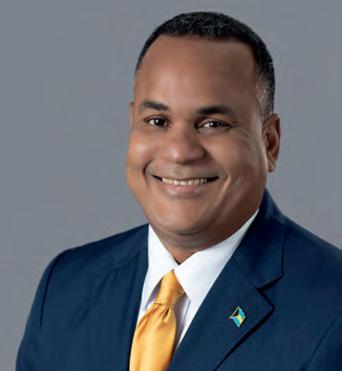
4 minute read
PANDEMIC IMPACT Why clients and advisors are revisiting their structures
A time to review
THE COVID-19 PANDEMIC HAS PROMPTED CLIENTS, FAMILIES AND ADVISORS TO REVISIT THEIR PLANNING AND STRUCTURES
Advertisement
BY EDWARD HALL
P
ractitioners know that it is good practice to review private clients’ affairs and structures regularly. The COVID‑19 pandemic brought this exercise into sharper focus, with private individuals and trustees reflecting on current structures. As a result, practitioners saw an increase in instructions to review wealth preservation measures. Below are some of the issues that we have explored with clients over the past two years during the pandemic.
INDIVIDUALS
We saw an increase in private individuals and their families reviewing their testamentary arrangements. This included updating existing testamentary papers (to reflect any changes to the circumstances of the family and their assets) and putting new testamentary papers in place. It is important to consider whether all members of the family have testamentary papers in place, as it is often the case that the next generation have never discussed their own testamentary arrangements.
The same applied to lasting powers of attorney (LPAs). We considered whether all family members had LPAs in place and existing LPAs were reviewed and, if necessary, updated. The importance of this exercise was exacerbated by the increased need to have attorneys in place in response to COVID‑19 complications and significant delays to register LPAs at the England and Wales Office of the Public Guardian (OPG). These delays continue to remain an issue, with the OPG reporting that it will take up to 20 weeks for it to register an LPA.
Private clients also embarked on wider estate planning, and we saw a wish to accelerate wealth passing to the next generation. The pandemic has crystallised families’ estate‑planning conversations and wealth succession plans have been brought forward.
TRUSTEES
In more certain times, there are many reasons why trustees may wish to review their trust structures, such as a change in family circumstances, or a shift in the tax situation affecting the trust. During the pandemic, these reasons were accentuated and additional reasons came to the forefront. In response to this, we saw trustees reviewing their structures.
Directly relevant to the pandemic was a review of incapacity provisions, with an international focus on the potential implications of COVID‑19 and concerns about health generally. We considered whether trust deeds or articles of association had provisions relating to the incapacity of trustees and/or directors and, if so, whether those provisions worked in practice.
Where there was a family business, we advised the trustees to conduct a review of the directors. It is critical to ensure that the right people are appointed as directors, and this is even more important during an economic downturn. Like the review of trust incapacity provisions, we also considered whether the business could continue as normal if there was an unexpected death or incapacity of key personnel.
We advised trustees to review any existing letter of wishes and consider whether those wishes should be updated to reflect any changes to beneficial interests and circumstances. During this process, we noted that a letter of wishes is often prepared on the creation of the trust structure, but keeping the letter of wishes current and updated is often overlooked.
We also advised trustees on their investment powers, duties and obligations. During economic difficulties and financial pressures, trustees are well advised to give their trust assets a health check. It is good practice to periodically review investment portfolios and arrangements with investment managers.
AN OPPORTUNITY TO RECONNECT
Generational shifts can also prompt change and the need for review. During the pandemic, we noticed an upward trend in trustees re‑engaging with their beneficiaries, and this involved the next generation, sometimes for the first time. Our experience was that beneficiaries welcomed the opportunity to reconnect with their trustees and to develop a relationship that went beyond the usual distribution requests from beneficiaries and the administrative and due‑diligence requests from trustees.
We also saw an increase in instructions to review structures as a whole and to consider whether they are fit for purpose: do they fit the requirements and circumstances of the family? There has been a move away from overly complex trust structures (which have now become outdated and unworkable) and a trend towards families simplifying and streamlining their structures.
Lockdown restrictions meant that some international families found themselves living in countries for longer periods of time than planned or expected. Trustees were advised to check the tax residency of their beneficiaries when making distributions during the pandemic to ensure that unexpected and adverse tax consequences did not occur.
The issues considered above and the lessons learnt during the pandemic have added to our full range of advice on tax, estate and trust matters.
This article is an excerpt of a presentation made to BFSB members in London, UK, on 30 June 2022 on the impact of the COVID‑19 pandemic on practice and developments in fiduciary services.
Edward Hall is a Partner at Wiggin Osborne Fullerlove










